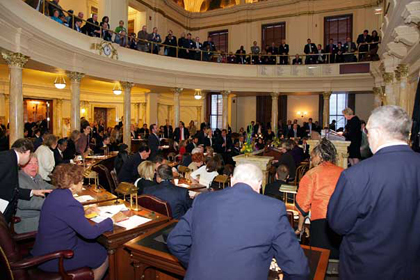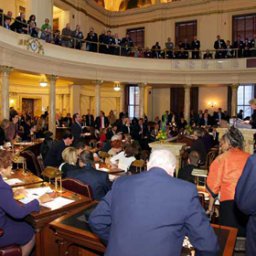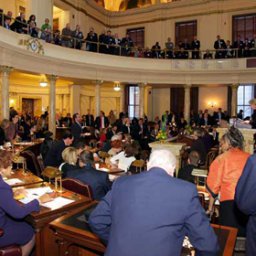
“Opioid Antidote and Overdose Prevention Act” Would Negate Legal Concerns to Prescribing and Administering Naloxone and Other Legal Opioid Overdose Antidotes
TRENTON – The “Opioid Antidote and Overdose Prevention Act,” legislation sponsored by Senators Joseph F. Vitale and Richard J. Codey, which would reduce the number of overdose deaths caused by opioids – such as heroin, oxycodone or morphine – in New Jersey was approved today by the General Assembly, receiving final legislative approval.
“Opioid overdose is quickly becoming a leading cause of death in America, with more people dying from it each year than from car accidents,” said Senator Vitale, D-Middlesex. “In this state we need a comprehensive strategy to combat these deaths and ensure that victims are given the chance to live long, drug-free lives. Opioid antidotes are easy to administer and nearly foolproof. These antidotes should be made more easily available. By removing doctors’ and health care professionals’ concerns when prescribing or administering opioid overdose antidotes such as naloxone to those who may need it, we can allow the medication to reach its full public health potential.”
The bill, S-2082, would encourage the broader use of opioid overdose antidotes – such as naloxone – by eliminating the possibility of negative legal action against doctors who prescribe and dispense or bystanders who administer the life-saving medication. The bill would provide civil and criminal immunity as well as professional immunity for health care professionals for prescribing, dispensing or administering naloxone or similar opioid antidote drugs.
Opioid overdose causes the victim’s central nervous and respiratory systems to depress, leading to death. Naloxone is a prescription opioid antidote that helps to reverse these effects and can revive virtually all victims of opioid overdose. The Senators note that opioid overdose antidotes have been used by paramedics and in hospitals for decades, and since the mid-1990s, often through needle-exchange programs, have been handed out to potential victims of opioid overdose in kits, similar to EpiPens. Since 1996, naloxone has reversed more than 10,000 drug overdoses, according to the Centers for Disease Control and Prevention (CDC).
“Victims of opioid overdose typically do not die instantaneously from the effects of the drugs, but rather stop breathing over hours, giving bystanders the ability to intervene and save their lives,” said Senator Codey. D-Essex and Morris. “Hopefully with this bill and increased access and use of opioid overdose antidote, we can save these victims and work to get them the treatment they need to get clean.”
The bill would also require health care professionals when prescribing or dispensing these opioid antidotes to a patient to ensure that they are aware of how to prevent and recognize an opioid overdose, the importance of calling 9-1-1 when someone is in opioid overdose, how to perform rescue breathing and resuscitation on an overdose victim, the correct dosage and how to administer the antidote, and how to care for the victims after they administer the antidote.
The bill would permit the Commissioner of Human Services to award grants to county and municipal health departments, corrections institutions, hospitals, universities, and organizations operating community-based programs or substance abuse programs for the creation and support of local opioid overdose prevention, recognition and response projects.
Drawing on a recent Boston University study, Senators Vitale and Codey added that community opioid antidote distribution programs have had successful results. The study compared 19 cities and towns throughout Massachusetts with at least five overdose deaths per year. Those communities with naloxone-distribution programs that had at least 150 people enrolled saw a 50 percent reduction in overdose deaths.
The bill was approved by the Senate last month with a vote of 37-0. It now heads to the Governor’s desk.




